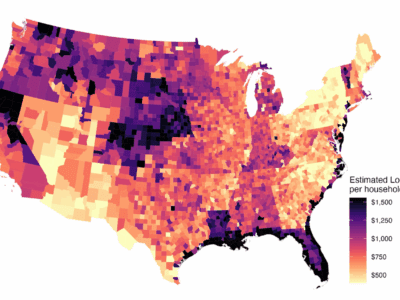And Here’s to You, Justice Werdegar
Retiring California Supreme Court Jurist Leaves Impressive Environmental Law Legacy
The California Supreme Court recently announced that Justice Kathryn Werdegar will retire this August, after serving for 23 years on California’s highest Court. Justice Werdegar is the longest-serving member of the currently-constituted Supreme Court.

Over her 23-year career on the Supreme Court, Justice Werdegar has authored at least 25 major opinions on a wide variety of environmental law issues. Her enormous influence on her fellow justices is reflected by the fact that the vast majority of the decisions she wrote on behalf of the Court were unanimous.
Justice Werdegar’s decisions on behalf of the Court reflect the broad range of environmental law issues that come before that tribunal. Her environmental opinions reflect both pragmatism and an abiding view that California’s environmental laws deserve robust interpretation and diligent enforcement.
Among Werdegar’s most influential environmental law decisions are those broadly interpreting the scope of “development” subject to regulation under California’s Coastal Act (Pacific Palisades Bowl Mobile Estates, LLC v. City of Los Angeles); opinions finding that federal food laws don’t preempt Californians’ ability to file lawsuits under the state’s Unfair Competition Law alleging food products are falsely labelled “organic” (Quesada v. Herb Thyme Foods, Inc.), and that California is free to regulate the importation of kangaroo products notwithstanding the federal Endangered Species Act (Viva! Int’l Voice for Animals v. Adidas Promotional Retail Operations, Inc.); that the director of California’s Department of Conservation has standing under the Surface Mining and Reclamation Act to challenge a county’s approval of mining reclamation plans under SMARA (People ex rel. Dept. of Conservation v. El Dorado County); and rejecting a regulatory takings-based challenge to a municipal ordinance restricting conversions of residential hotels to visitor-serving uses (San Remo Hotel L.P. v. City and County of San Francisco).
But Justice Werdegar is probably best known for her numerous opinions interpreting and applying the state’s most important environmental law, the California Environmental Quality Act (CEQA). Over the past 23 years she has authored many of California’s most important CEQA decisions, including:
- Muzzy Ranch Co. v. Solano County Airport Land Use Commission (applicability of CEQA to land use compatibility plan to area surrounding Air Force base);
- City of Marina v. Board of Trustees of the California State University (declaring invalid the University’s certification of an environmental impact report due to remaining, unmitigated project effects);
- Communities for a Better Environment v. South Coast Air Quality Management District (finding CEQA analysis of a proposed refinery expansion invalid due to its adoption of artificially inflated, hypothetical “baseline” environmental conditions); and
- Save Tara v. City of West Hollywood (holding that municipal agreements with a developer that predated the city’s preparation of EIR to violate CEQA by committing the city to a course of action before fully evaluating the project’s environmental effects).
In her CEQA opinions, Justice Werdegar has consistently given CEQA a muscular, “common sense” construction that–to this author, at least–seems fully faithful to the legislative objectives underlying California’s most overarching environmental law.
Among the many environmental decisions penned by Justice Werdegar over the years, however, my favorite is her most recent: People v. Rinehart. In that 2016 opinion on behalf of a unanimous Court, Werdegar upholds the criminal conviction of a miner who had violated California’s ban on environmentally-destructive suction dredging in state waterways, rejecting the miner’s defense that the federal Mining Act of 1872 preempts the state’s dredging ban. Werdegar’s opinion–besides reaching a sound result–is an absolute delight to read. It reveals Justice Werdegar’s love of California history and places this modern environmental dispute in a fascinating historical context. (The Rinehart case–analyzed in more detail in Legal Planet colleague Sean Hecht’s earlier post–is currently before the U.S. Supreme Court, following a petition for certiorari filed by the Pacific Legal Foundation on behalf of the miner defendant.)
Just as U.S. Supreme Court Justice John Paul Stevens emerged as that Court’s most influential environmental voice over the course of his 35-year tenure on the High Court, California Supreme Court Justice Kathryn Werdegar has been this state’s most commanding environmental law presence over the past 23 years. Her numerous, authoritative opinions on CEQA, preemption and many other key environmental law issues will influence lower courts, environmental lawyers and California’s environment far into the future.
Thank you for your public service and consistent judicial excellence, Justice Werdegar. Your impending retirement from the Supreme Court will leave a void in California environmental law that will be most difficult to fill.
Reader Comments
One Reply to “And Here’s to You, Justice Werdegar”
Comments are closed.







Don’t forget Justice Werdegar’s excellent opinion in Center for Biological Diversity v. Cal. Dept of Fish and Wildlife (2015) 62 Cal.4th 204. Already important and influential for its ruling on analyses of greenhouse gasses under CEQA, but certainly also important for its ruling on exhaustion under CEQA and its ruling on Cal’s fully protected species statute.
(Full disclosure: I might be a little biased, being on the legal time that litigated the case).